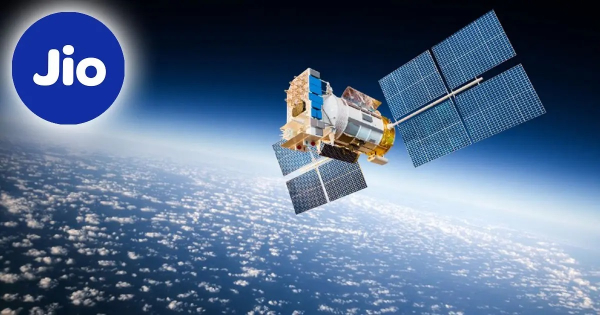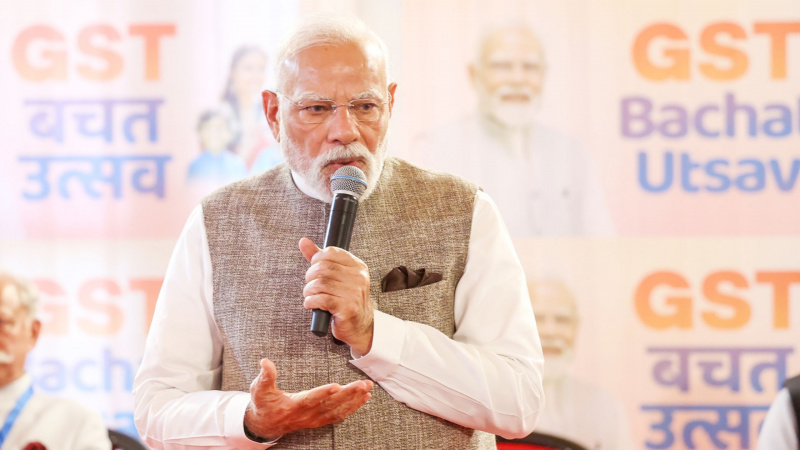Reliance's Jio Platforms overcomes obstacle in plan to introduce satellite internet in India
- by B2B Desk 2024-06-13 11:04:39
The Indian space regulator has approved a partnership between Reliance Industries' Jio Platforms and Luxembourg-based SES to offer gigabit fibre internet via satellites, confirmed a government official.
The three licenses granted to Orbit Connect India, who plans to offer satellite-based high-speed internet access, are part of the competition between companies like Amazon.com and Elon Musk's Starlink to provide satellite communication services in China.
The permissions have not been reported before. They were approved by IN-SPACe, also known as the Indian National Space Promotion and Authorisation Centre, in April and June. These permissions enable Orbit Connect to position satellites over India, however, additional authorizations from the telecom department of the country are required to start functioning.
Inmarsat, another company aiming to offer fast internet via satellites, has also received permission to have satellites operational above India, according to IN-SPACe chairman Pawan Goenka as told to Reuters. Both Starlink by Elon Musk and Kuiper by Amazon.com have submitted applications.
Eutelsat's OneWeb, supported by Bharti Enterprises, received all its approvals in the last part of the previous year.
The satellite broadband service market in India is projected to increase by 36% annually for the next five years and achieve a value of $1.9 billion by 2030, as stated by consultancy firm Deloitte.
Worldwide, the competition to link remote areas of the globe through satellite internet is gaining speed. Amazon intends to dedicate $10 billion towards Kuiper, a move revealed in 2019 when SpaceX started launching its initial operational Starlink satellites.
Starlink was granted initial approval by Sri Lanka last week to offer internet services in the country.
According to Goenka, consumers in India would benefit more if a greater number of companies were active in the sector.
Former Mahindra & Mahindra executive Goenka stated that the relatively affordable communication services in India will force international companies to innovate in order to lower their prices.
This is currently happening in various sectors such as the automotive industry, where global original equipment manufacturers (OEMs) have had to come up with new ideas to satisfy the demands of Indian customers who want high performance at a low price.
He also mentioned that private companies will soon be approved by IN-SPACe to run ground stations, allowing satellite operators to receive data while flying over India.
rime Minister Modi's administration, recently securing an unusual third term, has been actively promoting the growth of India's space sector.
This year, the sector allowed foreign direct investment and stated that overseas companies could invest up to 100% in manufacturing satellite components and systems without needing approval.
As a result, Goenka stated that investors' interest has "greatly expanded".
Investments in private companies ranged from $2 million to $7 million last year. He stated that this year the discussions revolve around $20 million to $30 million. "The verification of the idea has occured."
Also Read: What is NFO? Everything you need to know about new fund offer
POPULAR POSTS
The Agentic Revolution: Why Salesforce Is Betting Its Future on AI Agents
by Shan, 2025-11-05 10:29:23
OpenAI Offers ChatGPT Go Free in India: What’s Behind This Big AI Giveaway?
by Shan, 2025-10-28 12:19:11
Zoho Products: Complete List, Launch Years, and What Each One Does
by Shan, 2025-10-13 12:11:43
Arattai vs WhatsApp: Which Messaging App Should You Choose in 2025?
by Shan, 2025-10-10 11:55:06
Top Buy Now Pay Later (BNPL) Apps for Easy Shopping in 2025
by Shan, 2025-09-22 10:56:23
iPhone 17 Sale in India Begins: Full Price List, Launch Offers and Store Availability
by Shan, 2025-09-19 12:00:45
Apple September 2025 Event Recap: iPhone 17, iPhone Air, Apple Watch Series 11, and India Pricing Revealed
by Shan, 2025-09-10 09:55:45
RECENTLY PUBLISHED

Loan EMIs to Drop as RBI Slashes Repo Rate - Full MPC December 2025 Highlights
- by Shan, 2025-12-05 11:49:44

Pine Labs IPO 2025: Listing Date, Grey Market Premium, and Expert Outlook
- by Shan, 2025-11-05 09:57:07

Top 10 Insurance Companies in India 2026: Life, Health, and General Insurance Leaders Explained
- by Shan, 2025-10-30 10:06:42

Best Silver Investment Platforms for 2025: From CFDs to Digital Vaults Explained
- by Shan, 2025-10-23 12:22:46

Zoho Mail vs Gmail (2025): Which Email Platform Is Best for Businesses, Startups, and Students?
- by Shan, 2025-10-09 12:17:26

PM Modi Launches GST Bachat Utsav: Lower Taxes, More Savings for Every Indian Household
- by Shan, 2025-09-24 12:20:59




 Subscribe now
Subscribe now 